Next to the Black Cultural Archives, the ceremonial unveiling of the African & Caribbean War Memorial took place in Windrush Square Brixton on 22 June – Windrush Day. The date and location of the memorial fixed one key historical event in peoples’ minds, the arrival of SS Empire Windrush in 1948 carrying 498 men and a few women from the Caribbean. They had responded to the call to help rebuild Britain after the devastations of World War Two.
The other not so well known or much publicised fact was the contribution of African and Caribbean soldiers in both World Wars. This memorial comprising of two obelisks carries the names of every regiment, force, contingent and troop from Africa and the Caribbean as well as those currently serving in the forces today.
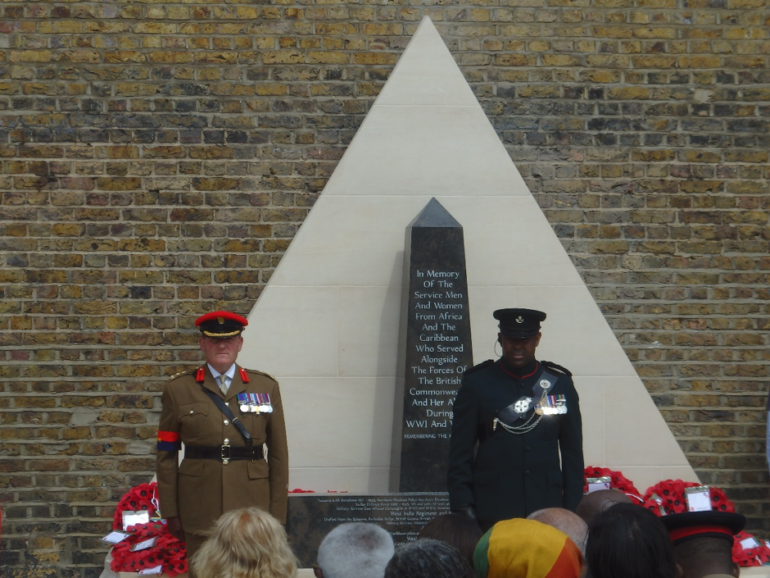
The event was an emotional occasion. Speeches given by key speakers Baroness Howells of St Davids, Baron Ouseley and Sadiq Khan expressed the feelings of pride, frustration and anger that resonated with the audience. Finally a memorial stands in London representing those men and women who, due to racial prejudice, did not get the recognition they deserved for their efforts, bravery or acceptance in fighting in the two major wars. This memorial will help raise awareness and also rewrite Britain’s military and social history.
The names of unsung heroes of both World Wars were called. Here are a few:
FIRST WORLD WAR
Alhaji Grunshi of the Gold Coast Regiment was the first soldier in the British service to fire a shot in WWl in the German colony of Togoland. He was part of an advance patrol in the capital city of Lomé and returned fire on a German led police force.
Walter Tull was the first Black British born army officer. He served in the Battle of the Somme. Tull met his death aged 29 while leading an attack on the Western front in March 1918. His body was never recovered. He was recommended for a Military Cross for bravery but it was never awarded.
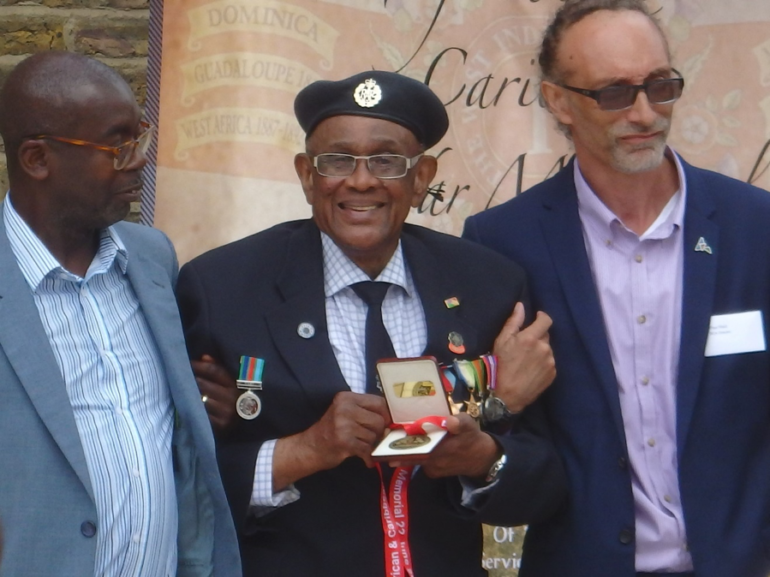
SECOND WORLD WAR
Cy Grant joined the RAF 103 Squadron and was a crew member of an Avro Lancaster Bomber. He was shot down over the Netherlands during the battle of the Ruhr. He was captured and imprisoned in Stalag Luft lll camp.
Ulric Cross was a Squadron Leader in the RAF Bomber Command. He was the only person from the Caribbean in his squadron. He was a member of the elite Pathfinder Force a specialist bombing squad and was awarded the Distinguished Flying Cross.
Sam King volunteered for the RAF as an engineer during WWII. He returned to Britain on the Empire Windrush. He was an active campaigner in the community, co-founder of the Notting Hill Carnival and the first Black Mayor of Southwark.
Una Marsons worked for the BBC Empire Services during WWll and created ‘Calling the West Indies’ where soldiers from the Caribbean sent messages to their families.
The African & Caribbean War Memorial at the Black Cultural Archives in Brixton area of London is made of Scottish Whinstone and weighs two tonnes and sits on an ancestor stone pyramidal plinth weighing three tonnes.
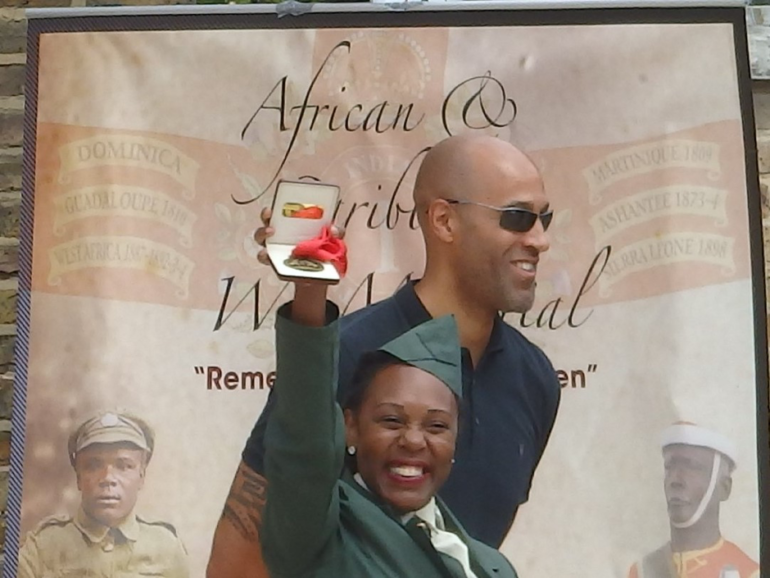



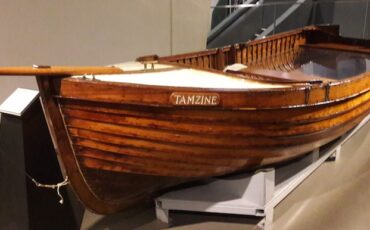
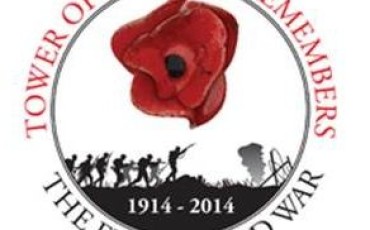

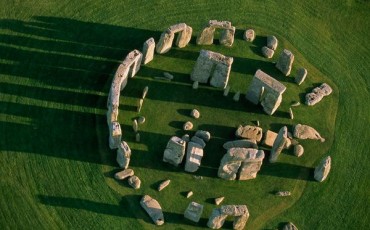
Leave a Reply